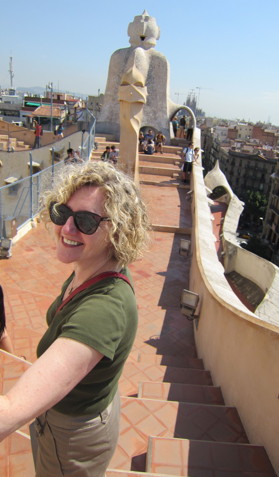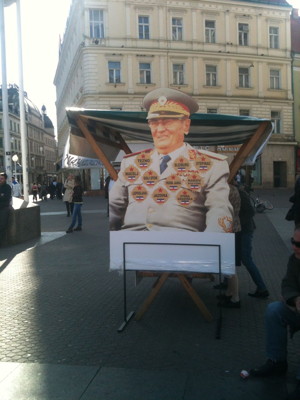 |
 |
 |
 |
 |
 |
|
Daphne Winland |
 |
| Anthropology |
|
 |
 |
 |
 |
|
|
|
|
 |
|
|
|
 |
Daphne Winland
Associate Professor
2034 Vari Hall
4700 Keele Street
North York, ON M3J 1P3
Phone: (416) 736-2100 Ext. 33539
Fax: (416) 736-5768
winland@yorku.ca
If there is a common theme that has run throughout my career as an anthropologist, it is an interest in the cultural reproduction of ethnic and national identities. This is the conceptual concern around which my research with Croats, Mennonites and Hmong refugees in Canada has been organized. I have always been fascinated, in both a personal and a professional sense, with the exponential increase in identity claims and their often violent manifestations. What I have learned over the years from people in multiple contexts who are "living politics" on a daily basis has had a major impact on how I interrogate the relationships between politics, identity, desire, memory and, most important, issues of being and belonging. |
| My research with Croatians began in 1992, and has consisted of several phases of fieldwork that began during a very tumultuous time for Croatians in Toronto. While walking through the Student Centre on campus in 1992, I noticed a large group of students gathered around one of the student club information tables. The commotion that ensued began with an altercation between students from the different former-Yugoslav republics over the war. At one point, campus security was called in and order was restored, for the moment. The passion and commitment for a war thousands of kilometres away for many of these mostly Canadian-born students piqued my interest. What was it that inspired such devotion, not to mention occasional displays of contempt for each other? Isn't being Canadian enough? Looking at these issues from the perspective of diaspora and transnationalism became central to my thinking about these questions. |
|

|
My publications, projects and research reflect a curiosity with the shifting and often confounding nature of identity formation in post-conflict contexts. I began investigating the influence of diasporas on nation-building projects, but also the involvement of homelands in construing a national imaginary for diasporas.
Since 2006, this research has extended to Bosnian Croats in Bosnia and Hercegovina who, faced with slow post-war reconstruction, ethnic/religious tensions, increasingly unstable political, economic and social institutions now see their future. Currently, I am investigating the evolution of Croatian diaspora-homeland relations away from political to economic driven involvements increasingly characteristic of neoliberal governance strategies focused on ‘strategic partnerships’ and ‘innovation clusters’ involving expert expatriates. I have also built on these interests to explore practices associated with civil society, social justice and citizenship.
Beginning in 2009, I have conducted ethnographic research on current policies and practices regarding youth homelessness and ‘family’ however configured, socially and culturally. My research to date has resulted in a policy document “Family Matters” being used by agencies across Canada and elsewhere. |
 |
Homelessness in Croatia – a recently acknowledged issue - is also part of this research focus. |
|
|
|
|
 |
|
|
| |
|
|
|





